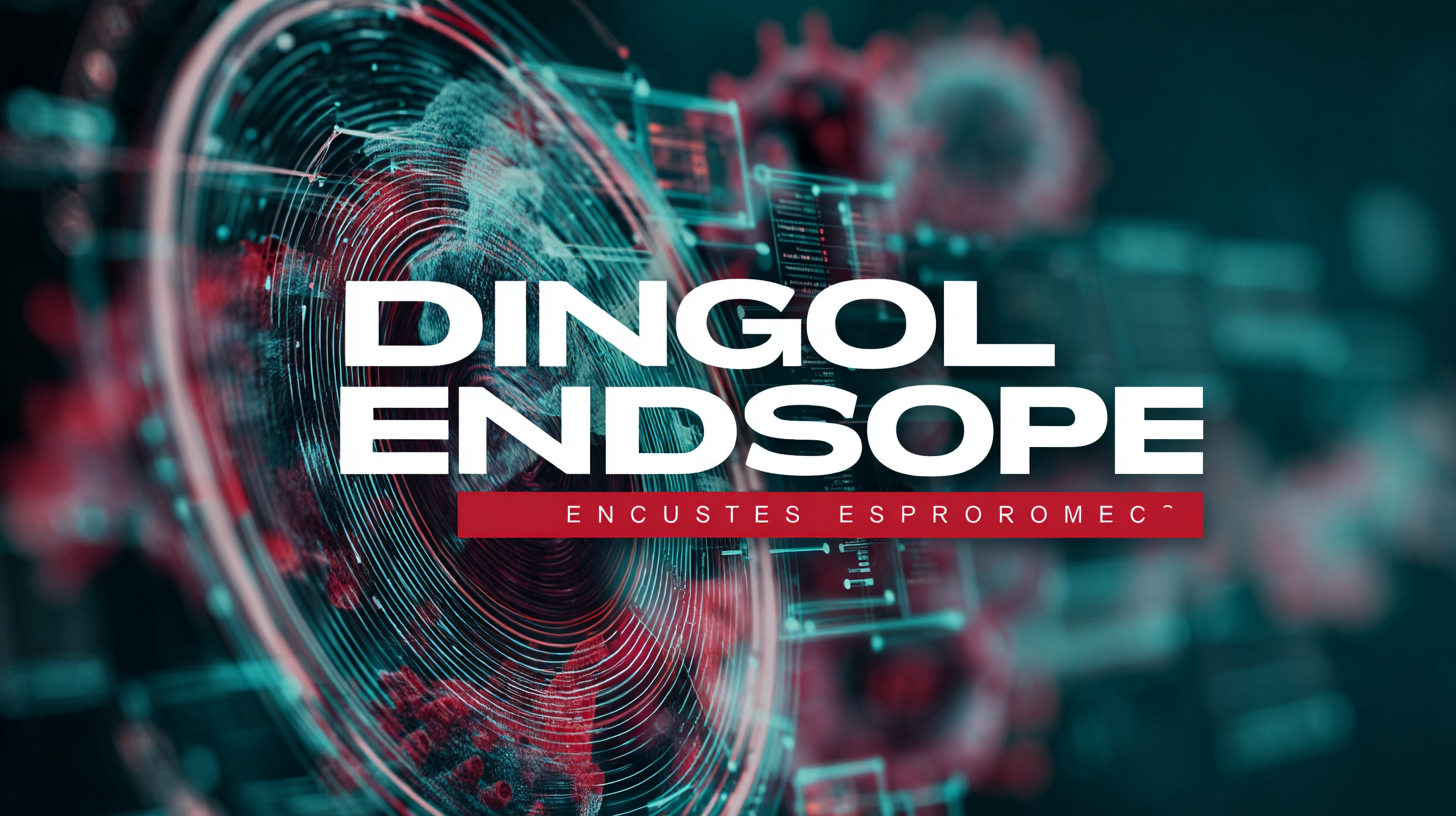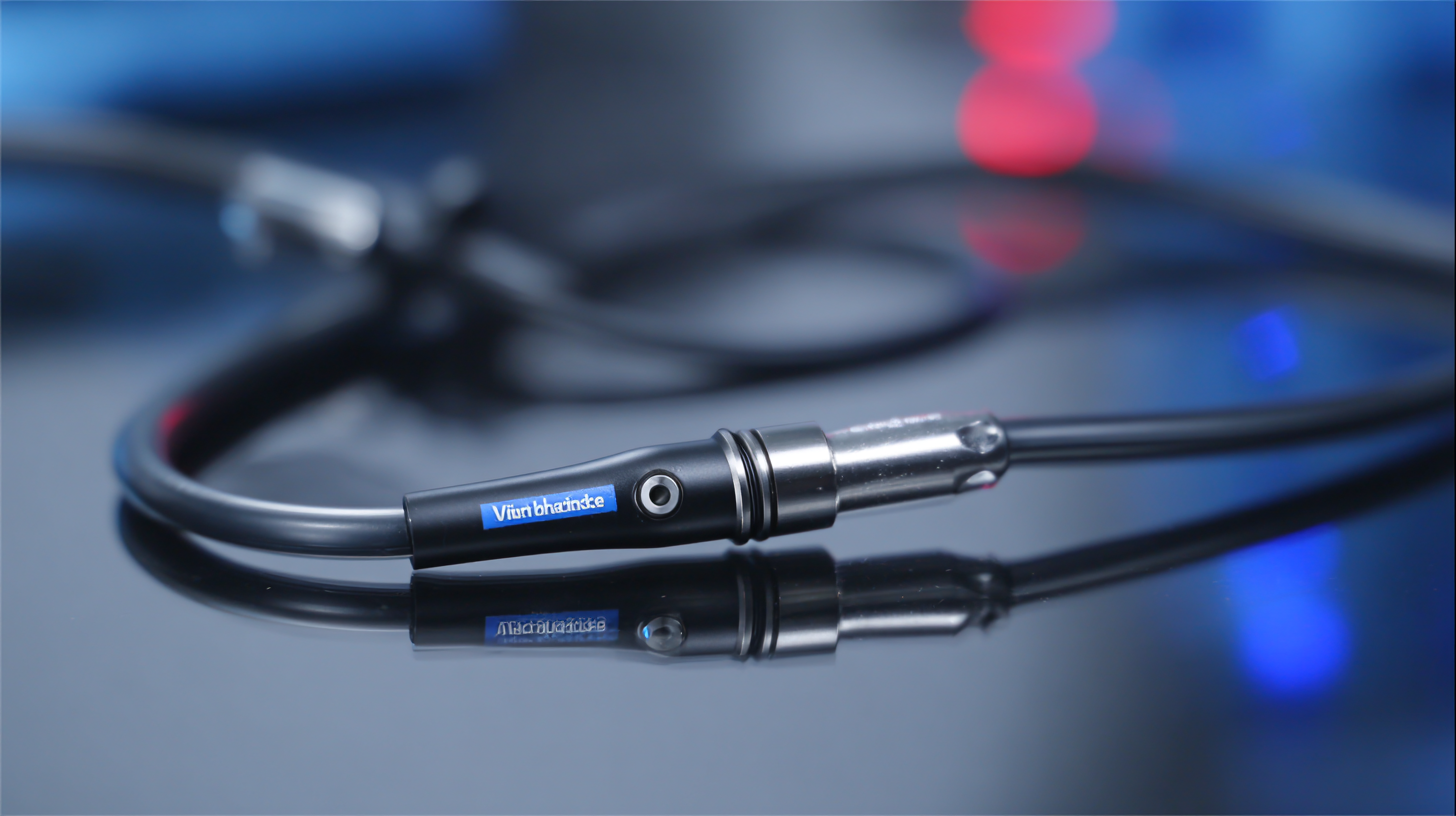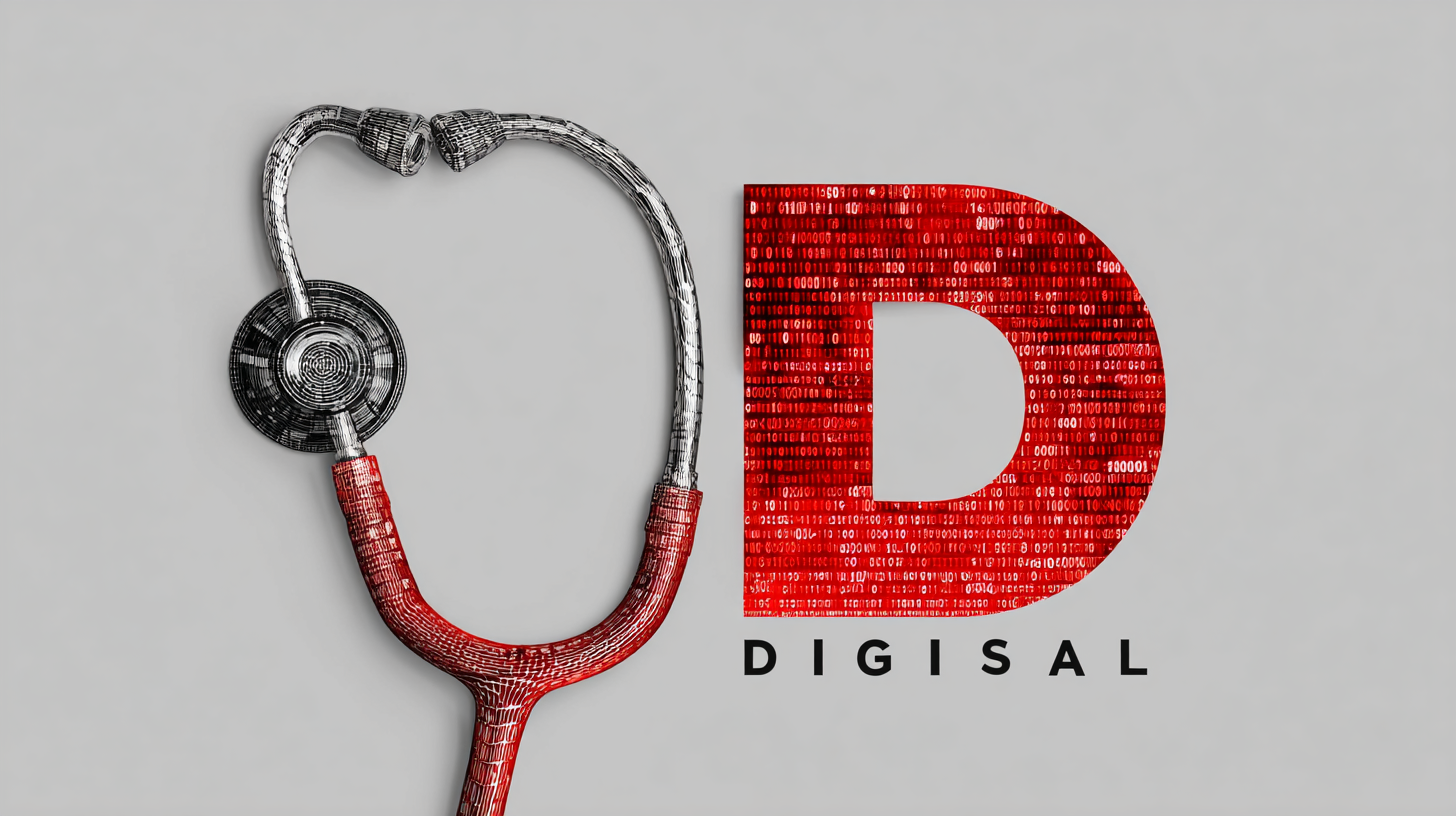Unlocking Quality: Essential Tips for Sourcing the Best Digital Endoscope Suppliers Globally
The demand for Digital Endoscopes has surged in recent years, driven by advancements in medical technology and an increasing emphasis on minimally invasive procedures. According to a recent market analysis by Grand View Research, the global endoscope market size was valued at approximately $26.9 billion in 2020, with projections indicating a compound annual growth rate (CAGR) of 6.8% through 2028. This growth is further fueled by the rising prevalence of chronic diseases and the expanding geriatric population, which necessitate effective diagnostic tools. As hospitals and clinics strive to enhance their medical equipment inventory, sourcing high-quality Digital Endoscope suppliers globally is imperative. By unlocking the potential of these state-of-the-art devices, healthcare professionals can significantly improve patient outcomes while optimizing their operational efficiency.

This blog aims to provide essential tips for identifying and collaborating with the best Digital Endoscope manufacturers, particularly from powerhouse regions like China, known for their robust manufacturing capabilities and export strength.
Identifying Key Attributes of Top Digital Endoscope Suppliers Worldwide
When sourcing digital endoscope suppliers globally, identifying key attributes is crucial for ensuring quality and reliability. According to a recent report by MarketsandMarkets, the digital endoscope market is projected to reach $4.74 billion by 2025, with a compound annual growth rate (CAGR) of 6.9% from 2020. This growth underscores the increasing demand for advanced medical imaging technologies, necessitating suppliers who not only offer cutting-edge products but also demonstrate robust quality control measures.
One of the primary attributes to look for is certification and compliance with international standards such as ISO 13485, which ensures quality management systems are in place for medical device manufacturers. Additionally, a strong emphasis on research and development is a hallmark of leading suppliers. Companies that invest at least 7-10% of their revenue back into R&D, as indicated by various industrial analyses, are more likely to innovate and provide reliable, state-of-the-art digital endoscopes. Lastly, customer support and after-sales service are vital; suppliers with dedicated technical support teams and comprehensive warranty programs tend to have better customer satisfaction ratings, as highlighted in a survey by the Global Industry Analysts.

Understanding the Importance of Quality Assurance in Medical Devices
When it comes to medical devices such as digital endoscopes, quality assurance is paramount. The risks associated with substandard equipment can be catastrophic, impacting patient safety and treatment outcomes. Hence, sourcing endoscopes from suppliers with a robust quality assurance framework is essential. This framework should encompass stringent testing protocols, compliance with international standards, and transparent manufacturing processes. Suppliers who prioritize quality not only enhance trust among healthcare professionals but also ensure that the devices perform reliably under various conditions.
Moreover, understanding the importance of quality assurance in the context of digital endoscopes goes beyond mere compliance; it involves a commitment to continuous improvement. Suppliers that actively engage in feedback loops, where healthcare providers can report on device performance, are more likely to evolve their products to meet emerging challenges in medical technology. As healthcare increasingly leans towards innovation, partnering with suppliers who embrace quality assurance as a core component of their business strategy is crucial. This partnership can lead to enhanced patient care, reduced operational risks, and ultimately, improved outcomes in clinical environments.
Navigating Global Supply Chains: Best Practices for Sourcing Endoscopes
Sourcing digital endoscopes has become an imperative task for healthcare providers aiming for quality and reliability. In navigating global supply chains, understanding the complexities of sourcing endoscopes is crucial. The first step is to identify reputable suppliers who adhere to international quality standards, such as ISO certifications. This ensures that the products meet the necessary specifications and regulations, ultimately safeguarding patient care.
Another key practice is to establish strong relationships with suppliers. Frequent communication and visits, when possible, can foster trust and facilitate better collaboration. Additionally, leveraging technology for real-time tracking of shipments and inventory can enhance the sourcing process. It allows for timely decision-making and minimizes delays in procurement. Engaging in a thorough vetting process, including checking references and reviews, plays a pivotal role in selecting suppliers that are not only reliable but also align with your organization's values and requirements.
Global Digital Endoscope Supplier Quality Ratings
This bar chart illustrates the quality ratings of various digital endoscope suppliers based on a scale of 1 to 10. It highlights the differences in perceived quality among suppliers, aiding in informed sourcing decisions.
Evaluating Manufacturer Certifications to Ensure Product Reliability
When sourcing digital endoscopes, evaluating manufacturer certifications is crucial to ensuring product reliability and quality. According to a report by MarketsandMarkets, the global endoscope market is projected to reach $45.5 billion by 2025, highlighting the increasing demand for high-quality digital imaging solutions. Reliable manufacturers often hold certifications such as ISO 13485, which ensures that their quality management systems meet rigorous standards for medical devices. This certification not only indicates compliance with international regulations but also signifies a commitment to continuous improvement and consistent quality in manufacturing processes.
Additionally, assessing certifications like CE marking and FDA approval can provide further assurance of safety and efficacy. The CE marking, mandatory for products sold within the European Economic Area, demonstrates that a manufacturer has adhered to safety standards set by the EU. Furthermore, the FDA’s 510(k) clearance process for medical devices ensures that the product is equivalent to a legally marketed device, further validating its reliability. By prioritizing these certifications, purchasers can mitigate risks associated with subpar products and enhance patient outcomes, ultimately contributing to the overall success in the evolving medical landscape.

Building Long-Term Partnerships with Trusted Digital Endoscope Suppliers
Building strong, long-term partnerships with trusted
digital endoscope suppliers is essential for healthcare institutions aiming to enhance their diagnostic capabilities.
According to a report by Market Research Future, the global digital
endoscope market is expected to reach approximately $3.3 billion
by 2025, driven by technological advancements and increasing demand for minimally invasive surgeries.
By focusing on strategic alliances with reliable suppliers, healthcare organizations can ensure access to state-of-the-art equipment
that meets evolving industry standards.
Establishing these partnerships requires a thorough evaluation of potential suppliers based on
quality, innovation, and customer support. A survey conducted by
Grand View Research reveals that 58% of healthcare
professionals prioritize supplier reliability when sourcing medical devices. Organizations should engage in regular communication,
share feedback, and co-develop solutions to address specific procedural needs. Investing time in nurturing
supplier relationships not only enhances product quality but also fosters collaboration that can lead to
groundbreaking innovations in digital endoscopy technology.

